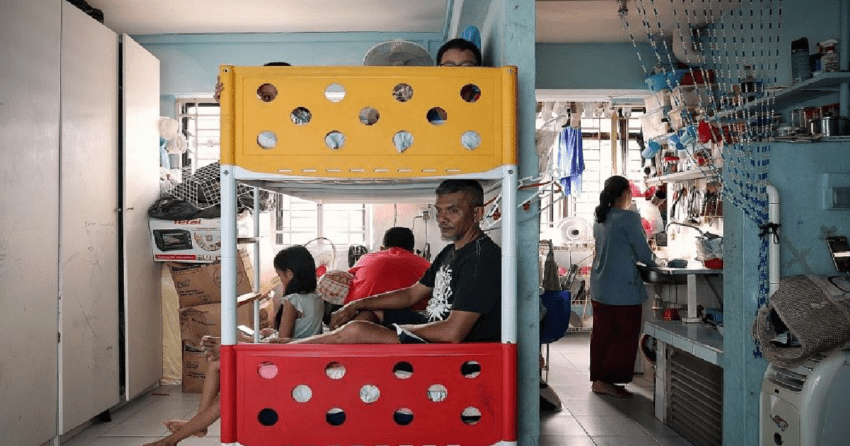Singapore’s unemployment rate reached a 16-year high in 2020 and retrenchments doubled from 2019. For many, Circuit Breaker 2020 and Phase 2 Heightened Alert 2021 = drastic drop in come or even no income.
A study by Beyond Social Services with more than 1,000 applicants of Beyond’s Financial Assistance Fund (FAF) conducted last year revealed that the median household income of families who sought help from them fell from $1,600 before the pandemic to $500. 69% – that’s a huge drop.
At the same time, resident households received $6,308 per household member on average from various government schemes last year, compared with the $4,684 received in 2019. In a year with countless of lives and livelihoods upended globally, the Singapore Government led the way with an unprecedented introduction of four budgets, with $93 billion set aside for COVID-19 support measures.
Fortitude, Solidarity, Resilience and Unity…
The COVID-19 Recovery Grant, Market and Hawker Centre Relief Fund, Enhanced Grocery Vouchers, GST Voucher – Cash Special Payment, GST Voucher – U-Save Special Payment, COVID-19 Driver Relief Fund (CDRF), Service and Conservancy Charges Rebate, Top-up to Child Development Account and Edusave, CDC Vouchers… The list goes on. Our leaders rolled out initiatives after initiatives month after month to prevent a downward spiral for the most vulnerable amongst us.
Many had seen their incomes drop, and savings completely dried up. I know of an insurance agent, a first-time dad, who moved on to do food delivery, and I’m sure you’ve heard your fair share of resilient Singaporeans who pivoted and took on whatever jobs that can put food on the table! Researchers, in papers published by the S. Rajaratnam School of International Studies shared that the social consequences of the lockdown were widely felt and had potentially lasting impact on the well-being of all segments of society here. The six authors of the papers, published from Aug 10 to 13, polled a total of more than 6,000 respondents. More than four in 10 households earning less than $1,000 and more than three in 10 of those earning between $1,000 and $2,900 reported having trouble paying for living expenses.
Then there were our hawkers, taxi-drivers, private hire vehicle drivers, food delivery workers, freelancers performers, creative writers. They were not left out. The MOM estimates that there are around 200,000 of these self-employed persons.
To cushion the impact of the pandemic from this group, the Government, after feedback from NTUC’s countless ground engagement sessions, came up with the Self-Employed Persons Income Relief Scheme (SIRS). To speed up the processing of the applications and appeals, NTUC stepped in to help the Ministry of Manpower (MOM) administer the SIRS amidst a crucial time. The team at NTUC also hunkered down and focused on helping workers keep their jobs, find new jobs where needed, transition into better jobs. Because at the end of the day, the job is the best welfare. And it’s not all NATO (no action, talk only)! The NTUC Job Security Council (JSC), operationalised by NTUC’s e2i was set up to create an ecosystem to pre-emptively match at-risk and displaced workers into new jobs. More than 32,000 workers have secured new jobs with the help of the Job Security Council to date, but Labour chief Ng Chee Meng shard in his National Day message earlier this month that lower-wage workers who are still reeling from the prolonged effects of the pandemic and need extra help. The work is not done, and the rest of us can do more too. Will we all pay a bit more to have higher wages for our lower-wage workers like cleaners, and security officers?
“In such times when our workers are increasingly anxious and concerned, this is a grim and constant reminder, that we must press on and help our workers maintain their livelihoods.” – Ng Chee Meng, NTUC Secretary-General
Leave no Singaporean behind.
We were an “unexpected nation”, sort of. Our sudden expulsion from the Federation of Malaysia in 1965 meant that Singapore struggled to serve its people from day one. Jobs were scarce. Many were struggling to make ends meet. To ensure our long-term survival, the newly formed government sought to attract investors to set up businesses here to grow the economy, and create better jobs for our people. Business costs like taxes had to be kept low so that Singapore would be attractive to the foreign investments that we so badly needed then! We had to be prudent with public funds – including those allocated for welfare provisions. As we strive to uplift the vulnerable amongst us, and provide opportunities to help them level up in the longer term, we need to maintain a strong culture of hard work and self-reliance. Today, these same principles continue to guide our welfare policies. And while detractors may argue all they like, the approach is a sound one – fair and sustainable to make sure that as a society, we leave no Singaporean behind… #Togetherwecan
*Cover image credit
